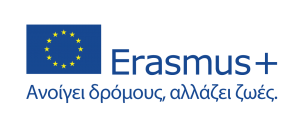Αρχική » LTTAs
Αρχείο κατηγορίας LTTAs
Roma in Portugal
Presentations about Roma in the area and the educational system during the LTTA in Portugal at the partner school Agrupamento de Escolas de S. João da Talha PT Roma in Portugal PT Portuguese Educational System
Portugal Guide for Roma in Education
Presentation about the school Agrupamento de Escolas de S. João da Talha practices together with Municipality PT Best practices for Roma education
LTTA 3 Portugal Report
Let’s know each other: Strategy for the Equity Inclusion of Roma Students Project code 2020-1-EL01-KA201-078810 The third LTTA took place between 05-10 March 2023 in Portugal, Lisbon, our host organization was Agrupamento de Escolas de S. João da Talha. 4 participants from each partner arrived – professionals and teachers who work with Roma students, Roma […]
LTTA 2 Bulgaria Report
Let’s know each other: Strategy for the Equity Inclusion of Roma Students Project code 2020-1-EL01-KA201-078810 The second LTTA took place between 03-07 October 2022 in Bulgaria, Kazanlak. The participants were professionals and teachers that work with Roma students and Roma people. The participants of the meeting arrived at Bulgaria on the 2nd of October, most […]
LTTA 1 Hungary Report
Let’s know each other: Strategy for the Equity Inclusion of Roma Students Project code 2020-1-EL01-KA201-078810 2nd report LTTA in Hungary 22-26 November 2022 The first LTTA took place between 22-26 November 2022 in Hungary, Jászberény. The main goal of the meeting was to gain deep insight into the Hungarian education system with the purpose to […]
The Roma strategy of association “Testvérvárosok Baráti Egyesülete” Hungary
The Roma strategy of association “Testvérvárosok Baráti Egyesülete”, related to support of Roma families The city of Jászberény has nine twin cities, it means that the different activities of the association are strongly connected to the activities of all the twin cities. Four of them have larger Roma communities. These are: 1./ Sucha Beskidzka (Poland), […]
LTTA 2 in Hungary -by Spanish team
The second LTTA in Hungary Learning together to be inclusive A PowerPoint presentation of LTTA 2 events and activities ES LTTA 2 HUNGARY by Spanish team
Roma football girls
Watch a video about a great football team by Roma girls https://www.youtube.com/watch?v=pYFFx5vNV6Y
National Roma Integration – 2014 review Key steps taken since 2011
BULGARIA Education Two-year obligatory pre-schooling introduced with language training if needed. Gradual introduction of all-day school. In three years (2010-2013), a Bulgarian educational project has brought down the number of children who drop out of school by almost 80% Employment 80-95 Roma mediators appointed in local employment offices. Community Development Centres (CDC) promoting the employment […]





